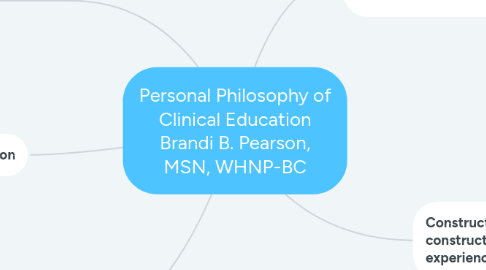
1. Experimental Learning: Learning through reflection on doing
1.1. Students
1.1.1. learn by having particular experiences, hands on learning, role playing, and going through simulations
1.2. Instructors
1.2.1. should allow for self learning by the students, encourage the student to learn more concepts through experiment, and provide feedback on the student's progress
2. Demonstration
2.1. Demonstration: used to provide examples that enhances lectures, and encourages hands on based learning experiences
3. Group Discussion
3.1. Insructors
3.1.1. act as facilitators during group discussion, keep the discussion active, and encourage peer learning through discussion
3.2. Students
3.2.1. challenge ideas, develop ideas, and acquire ideas by group discussion
4. Humanism: Learning is student centered and personalized, the instructor acts as the facilitator
4.1. Students
4.1.1. take personal responsibility for learning, learning is self taught, students learn on their own and is self directed.
4.2. Instructors
4.2.1. provide an environment for self learning, encourage student growth and creativity, and model appropriate behaviors
5. Constructivism: Learners construct knowledge out of their experiences
5.1. Students
5.1.1. learn by being in a group, working together to solve problems, role playing, and group projects
5.2. Instructors
5.2.1. encourage critical thinking skills, encourage group learning and improving communication amongst the group, encourage collaboration, close the gaps in knowledge for the group

